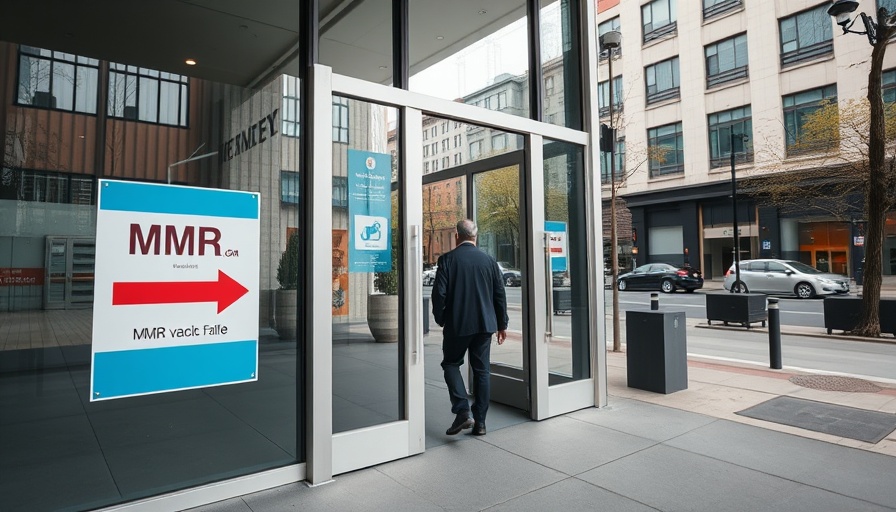
Understanding the Resurgence of Measles
Measles, once officially eliminated in the United States for over 25 years, is now making a concerning comeback, primarily concentrated in regions such as West Texas and New Mexico. This resurgence raises pressing questions about public health measures and vaccination strategies that can effectively control this highly contagious disease.
The Current Landscape of Measles Cases
As it stands, measles is spreading again, with recent reports indicating that multiple states are experiencing outbreaks. The grim reality hit home with tragic deaths attributed to these outbreaks, reminding us of the severe implications that measles can have, particularly on vulnerable populations like children. In West Texas alone, two children have died due to complications arising from measles, emphasizing the urgent need for a robust public health response.
Historical Context: The Journey of Measles in America
The historical narrative of measles in the U.S. illustrates a cyclical battle with preventable diseases. Since its official elimination, public health officials have hailed vaccination as a critical tool in preventing outbreaks. However, complacency and misinformation about vaccines have contributed to declining vaccination rates, creating fertile ground for the virus's resurgence. Understanding this historical context is vital for grasping the current challenges, as it highlights the critical importance of sustained public health advocacy and education.
Counterarguments: The Debate on Vaccines
The waves of misinformation regarding vaccines have sparked heated debates across the nation. Some parents hesitate to vaccinate their children due to fears surrounding vaccine safety, despite scientific evidence supporting their efficacy. This skepticism can undermine community immunity, which is essential to prevent outbreaks. It's imperative to engage communities in discussions that address their concerns transparently and respectfully, thereby fostering trust in public health initiatives.
Identifying Actionable Strategies: What Can Be Done?
According to health experts, restoring high vaccination rates is crucial to controlling measles outbreaks. Public health campaigns that inform parents of the benefits and safety of the MMR (measles, mumps, rubella) vaccine are necessary. States experiencing outbreaks may also consider implementing school vaccination mandates and ensuring accessible immunization programs regardless of socio-economic status. Additionally, healthcare professionals must continue educational outreach to dispel myths about vaccines and emphasize their importance for the health of the community.
Future Insights: The Role of Technology in Health Campaigns
Innovation in health technology also offers promising avenues to combat measles. Interactive apps providing vaccination reminders, alongside social media campaigns highlighting personal vaccination stories, can empower parents to make informed decisions. Additionally, leveraging big data in health analytics could help identify communities at risk and enable targeted outreach programs. Emphasizing technology not only engages a younger, tech-savvy audience but also fosters community-driven approaches to health education.
Conclusion: A Call to Action for Public Health
The fight against measles requires collaborative efforts from healthcare providers, policymakers, and communities. As cases rise once again, a decisive and unified response is paramount. Whether through enhancing public health education, digitally engaging communities, or reinstating vaccination mandates, each step taken can significantly contribute to steering the country back toward measles elimination.
Every stakeholder—whether you're on the front lines of health care, a policy maker, or a concerned citizen—has a part to play in minimizing the risks associated with measles outbreaks. Consider advocating for vaccine education programs or supporting health initiatives in your community. Together, we can push for a healthier, albeit more informed, future.
 Add Row
Add Row  Add
Add 




Write A Comment